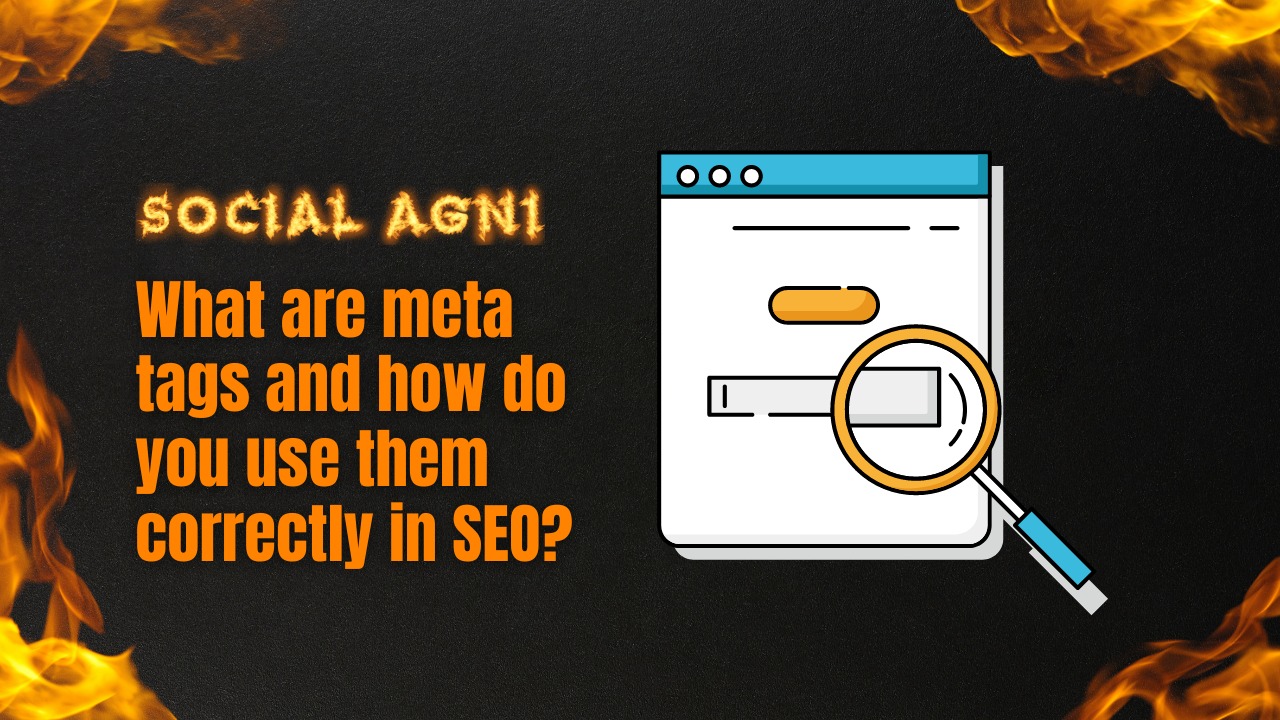Search engine optimization (SEO) has emerged as a critical component of any effective online presence in the ever-expanding digital realm. The visibility and ranking of a website on search engine results pages (SERPs) are improved using a variety of tactics and strategies. Meta tags play a big role among the numerous factors that go into successful SEO. The header portion of a web page contains HTML code snippets called meta tags. They notify search engines about the information on a webpage. Although meta tags are not directly visible to visitors on the website, they are extremely important for how search engines interpret and present the page in search results. Although there are many other kinds of meta tags, the meta title, meta description, and meta keyword tags are the most often used ones (although the latter has become less important in recent years). Each of these tags has a particular function in informing search engines of crucial information. The title of a webpage is determined by the meta title tag, sometimes called the title tag. The clickable headline for it may be found in search results and on browser tabs. To capture visitors’ attention and raise search engine rankings, an optimized meta title tag has to be succinct, captivating, and filled with pertinent keywords. On the other hand, a webpage’s content is briefly summarised in the meta description element. It affects visitors’ decisions to click through to the website since it displays in search results below the meta title tag. Writing an engaging and keyword-rich meta description may have a big influence on click-through rates and boost organic traffic. The meta keyword element is used to provide the pertinent keywords connected to a webpage, however as a result of keyword misuse throughout time, it has lost some of its importance. Search engines now place more emphasis on content analysis and relevancy than they once did on meta keywords. It is essential to adhere to standard practices in order to employ meta tags for SEO properly. This entails carrying out in-depth keyword research to determine the best keywords for each page, creating distinctive and descriptive meta tags for each webpage, ensuring that the meta tags and the content of the page are consistent, and routinely reviewing and updating meta tags based on performance and SEO trends. What are Meta Tags? Search engines and internet browsers may learn more about a web page’s content through meta tags, which are short pieces of HTML code. They are essential to search engine optimization (SEO) because they aid in the correct understanding and categorization of web pages by search engines. An HTML document’s head section is where meta tags are put. Title Meta Tag One of the most crucial meta tags is the meta title tag. In search engine results pages (SERPs) and browser tabs, it serves as the clickable headline and identifies the title of a web page. The meta title tag for your website should be short, descriptive, and include important keywords. It aids in the topic and goal of the website’s understanding for both users and search engines. Tag for meta-description A webpage’s content is briefly summarised in the meta description tag. It acts as a preview of the web page’s content in search results and displays below the meta title tag. Writing an engaging and pertinent meta-description tag can enhance click-through rates by influencing visitors’ choices of which search results to click. Markup Language Previously, keywords pertinent to a webpage were specified in the meta keyword tag. However, because of previous abuse and misuse, search engines no longer assign this tag any weight. Some search engines may still use meta keywords as a signal for relevance, although to a reduced level, even if their influence on SEO has decreased. Meta tags give search engines useful data that helps them more accurately index and rank web pages. The meta tags of a website are examined by search engines as they crawl it to determine the page’s subject, relevancy, and possible keywords. The likelihood that a webpage will show up in relevant search results is increased by properly optimized meta tags. It’s important to remember that using meta tags alone cannot ensure good ranks in search results. They must be supplemented by high-quality content, sound website design, and other SEO strategies. Additionally, different search engines may read meta tags in various ways, making it essential to abide by the best practices and recommendations made by search engine providers. It’s crucial to regularly evaluate and update meta tags by performance and SEO trends. Website owners and SEO experts may increase a webpage’s exposure, draw targeted traffic, and improve the user experience overall by employing meta tags correctly. The Role of Meta Tags in SEO Meta tags educate search engines about a webpage’s content, helping SEO. They assist search engines categorize and rank online pages. Meta tags’ SEO functions Meta Title Tag Search results headlines are meta title tags. Optimization can boost SEO Keyword Optimisation Keywords in the meta title tag assist search engines comprehend the page’s topic and boost its exposure for related queries. User Engagement A captivating and succinct meta title tag improves search user clicks, delivering organic traffic to the webpage. Search Engine Ranking Since the meta title tag is regarded by search engines as a key ranking component, optimizing it can help raise the position of search results. Meta Description Tag In search results, the meta description element gives a succinct synopsis of a webpage’s content. Its function in SEO entails Attracting Clicks Users may be persuaded to click on a search result if the meta description tag is well-written, showcases the webpage’s distinctive value proposition, and contains pertinent keywords. CTR Optimisation The click-through rate (CTR), a crucial SEO measure, may be raised by increasing the number of clicks a meta description tag receives in comparison to rival search results. Indirect Ranking Factor Although meta descriptions don’t directly affect search results, they can indirectly affect ranks by increasing click-through rates
